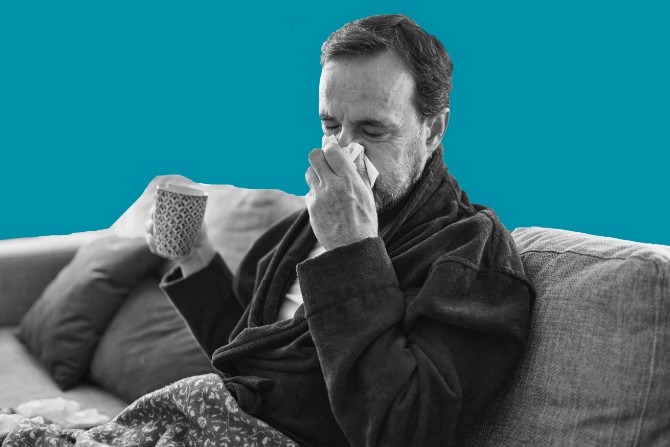Take care of your body. It's the only place you have to live - Jim Rohn
As we get older our immunity to infections decreases and we are left vulnerable and open to catching viruses and bacterial infections.
What are the signs that I have an infection that I should look out for?
- tiredness
- fever or chills
- stiff neck
- cough or nasal congestion
- aches and pains
These signs may be less obvious, particularly for urinary tract infections (UTIs).
Cold and flu
The most common of infections is a cold or flu. Regardless of your age, the NHS recommend the following:
- rest
- fluids (water, tea, coffee, soup or milk)
- cold or flu medication from your local pharmacy (should you have a pre-existing medical condition/s please check with your pharmacist when buying medication)
With cases of infection, especially with airborne viruses such as a cold or flu, you should always follow basic hygiene advice:
- wash your hands thoroughly with warm water and soap
- use tissues when you cough or sneeze
- bin used tissues as quickly as possible
Prevention
If you are over the age of 65 then you can book an appointment with your local GP surgery or local pharmacy for a free flu jab.
Urinary tract infections (UTIs)
Signs you may have a UTI include:
- needing to wee more frequently
- smelly or cloudy wee
- lower stomach pain or burning
In addition to the above, you may also feel a little unstable on your feet, confused and agitated. If you feel you may have a UTI then consult with your doctor immediately.
Four month medicine review
If you have been on a course of medication, prescribed by your GP for over four months, you may benefit from a medicine review. The review will help you to better understand your medicine and offer you the chance to ask questions about your medication such as side effects or anything you aren’t to sure about. Your GP, pharmacist or nurse will then answer your questions and provide you with further information, if needed.
Drug and alcohol abuse
Any form of abuse of a substance, be this drugs or alcohol, will have an affect on your brain and your body. If you consistently take copious amounts of illegal or prescribed drugs and/or alcohol this can have a serious effect on the nervous system. The nervous system runs throughout the body and manages everything from what and how you feel through to balance. If drugs and alcohol are abused, then damage can cause the brain to misfire its connection to the nervous system – in time this means you may find that you fall over or become increasingly unsteady on your feet.
If you feel that you need help with either drugs or alcohol, there are organisations that can help you.
Coronavirus
The main symptoms of coronavirus (COVID-19) are a high temperature, a new, continuous cough and a loss or change to your sense of smell or taste.
